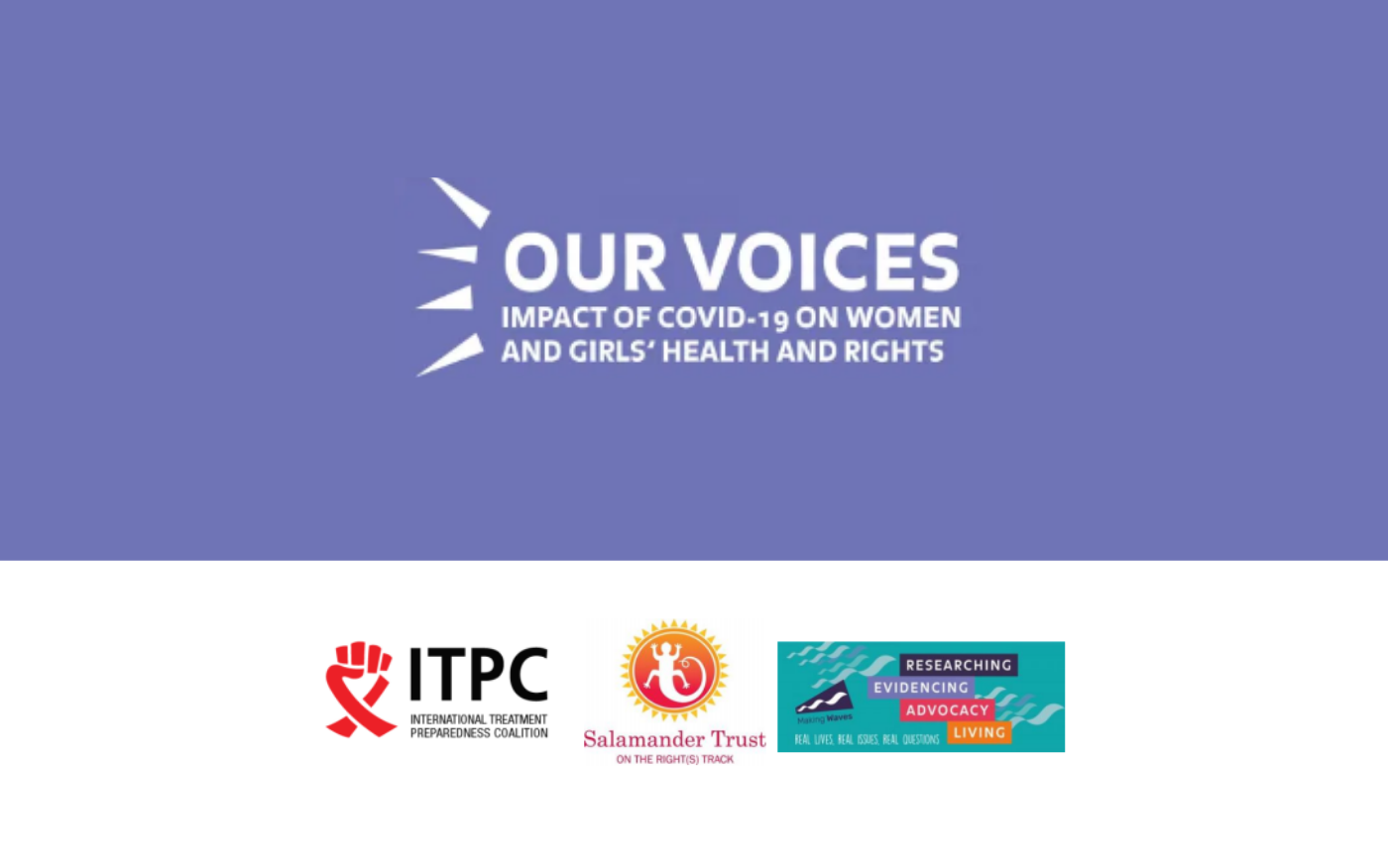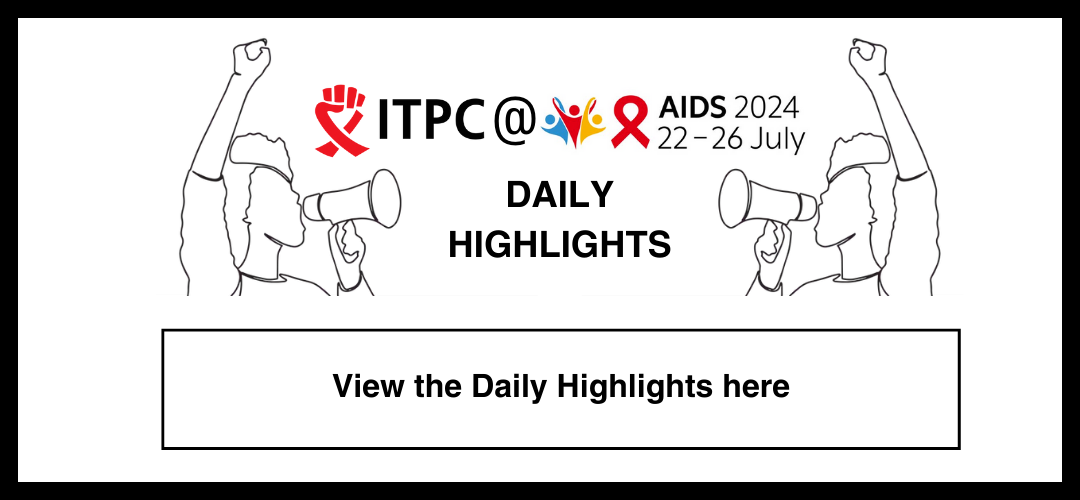How COVID-19 is affecting the lives of women living with HIV in Kenya, South Sudan, Uganda and Zimbabwe.
In August-September 2020, with support from ITPC, Salamander Trust and Making Waves consulted with 30 women in 10 counties in Southern and East Africa. Ten interviews took place virtually with women leading community efforts to address HIV and SRHR in Uganda, Kenya, Namibia, Botswana, Eswatini, Tanzania, South Africa, South Sudan, Zambia, and Zimbabwe.
Four of these women then conducted in-person or phone interviews with a further twenty women living with HIV – five each from Uganda, Zimbabwe, Kenya and South Sudan – in acknowledgment that the digital divide excludes many women.
The women involved are living with HIV or working with women and girls living with HIV. They range in age from 17 to 54, and live in urban, rural or peri-urban areas. They include adolescents living with HIV, young women, pregnant women, mothers married and single, women living with disabilities and co-morbidities, women who are engaged in sex work, women who use drugs, LGBTQI+ women and women who experience racism. Some have had COVID-19. Many of them have stepped up their activities to promote gender equality and SRHR throughout the pandemic, often at considerable personal cost.
Their experiences illustrate that there will be no ethical, effective, sustainable response to COVID-19 without women being at the centre of decision-making around their SRHR.
We are pleased to share here short videos from Kenya, South Sudan, Uganda and Zimbabwe, summarising the issues raised by women living with HIV in each country.

